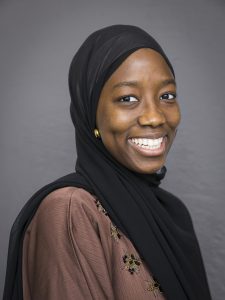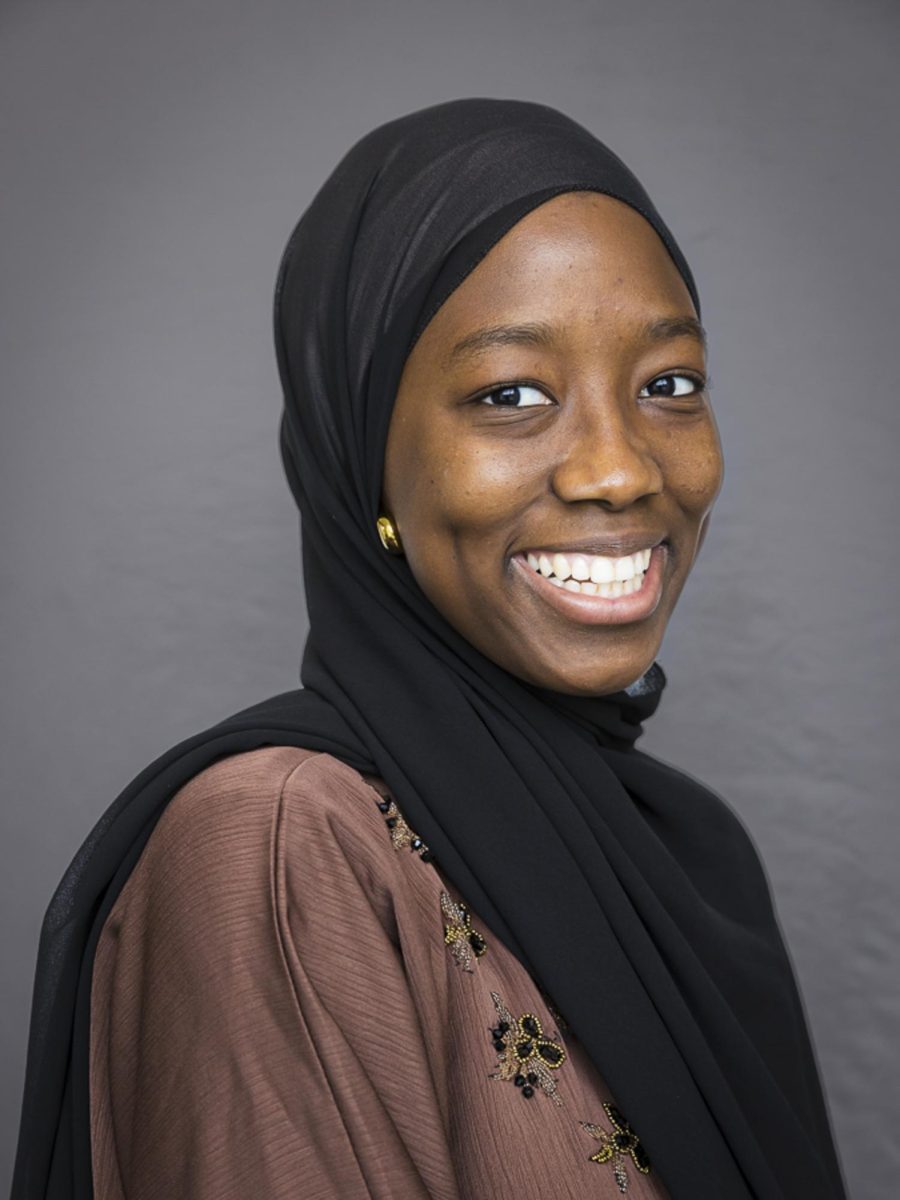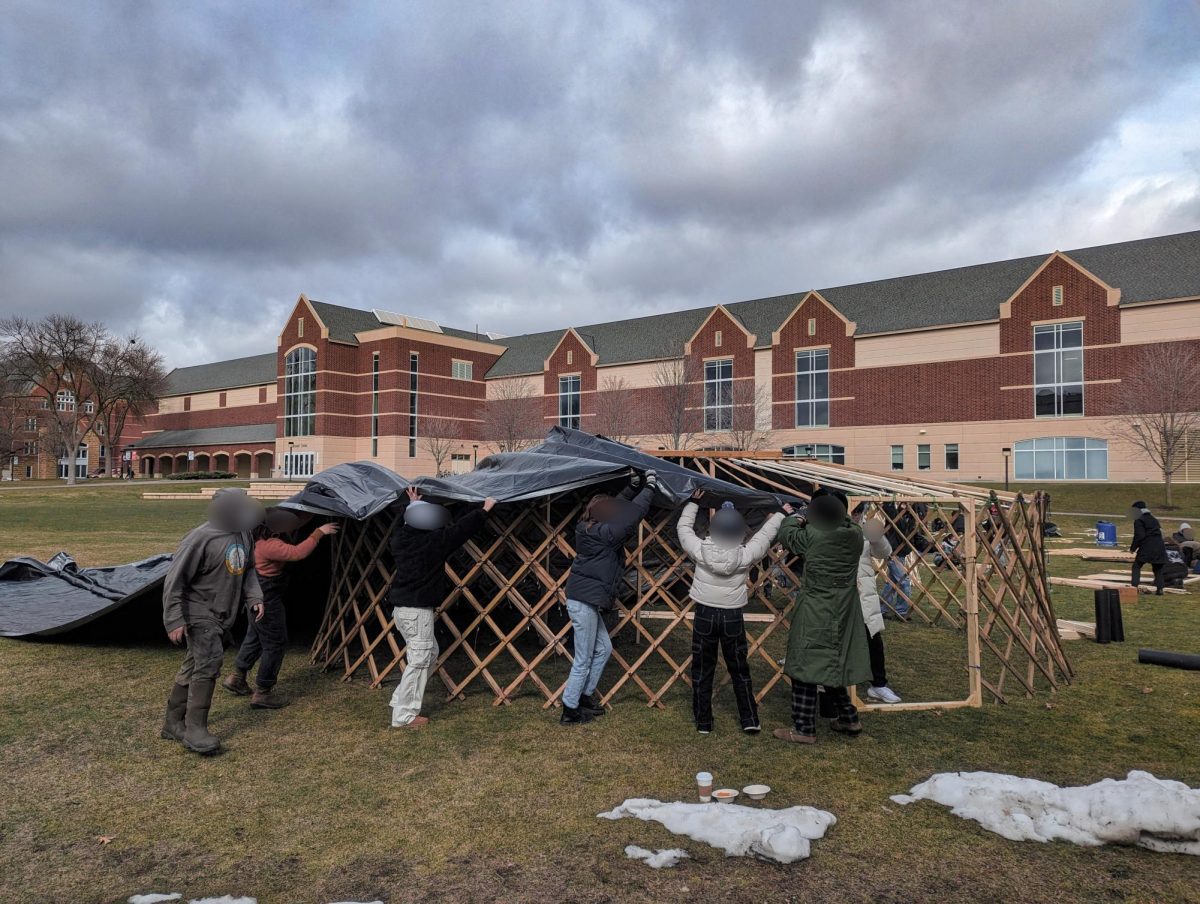
Last Thursday, Feb. 18, the Lectures Coordination Board (LCB) presented their first speaker event of the year in the Alexander G. Hill Ballroom. The event featured Noor Tagouri, a young journalist dedicated to becoming the first hijabi journalist on commercial TV in the United States. Tagouri’s determination and the launch of her social media campaign #letnoorshine in 2012 have brought international attention to her attempts to break down barriers on commercial television and elsewhere.
“We had recently gotten confirmation that we would be bringing Opal Tometi and Janaya Khan [two leaders of Black Lives Matter] to campus in April, and we knew we wanted to do an event before that as well,” said LCB member Gregory Zacharia ’18 on securing Tagouri for the speaking engagement. “We found Noor through the Keppler speaking agency, and we believed that her story would resonate with the Macalester community.”
Zacharia recognized that the audience was slightly smaller than it could have been for Tagouri’s talk.
“This is our first event of the year, and none of us were members of the board last year, so we weren’t too sure what to expect in terms of attendance,” he said. “We were overall very happy with the turnout, but we recognize that we likely had a smaller audience because of how late the details were finalized and how little time we had to publicize the event.” “On most occasions, I’m usually the elephant in the room,” Tagouri said, kicking off her talk. “An Arab woman, who is a hijabi and is a journalist on television.”
Tagouri spoke to the group about her struggles as a child and teenager with her identity as a Muslim in America. On her first day of first grade, Tagouri asked another girl in her class if she was Muslim. The other girl responded, “Am I what?”
“That was the last time I brought up my religion for years,” Tagouri said. “Throughout those years in elementary school, in middle school, in high school, I kind of went through this identity crisis.” She mentioned that she spent a large amount of her elementary and middle school experience being ashamed of the fact that her mother, who was active at her schools, wore the hijab and would frequently show up to Tagouri’s school. “My mom would walk around in it and I just felt this bitterness towards her. ‘Why do you have to do that?’”
At the same time that she was going through her identity crisis, though, Tagouri had a strong sense of the work she wanted to do in the world.
“I wanted to be a journalist. I knew I wanted to be a journalist before I even knew the term journalism,” she said, describing how she would come home from school as young girl and watch Oprah with her mother every day. “I loved it. I loved how she could get people to share the most incredible personal stories … I felt like, ‘Okay, I want to do something like this, too.’”
Eventually, her parents noticed the struggle that Tagouri was going through and moved in order to place her in a different schooling situation, in a private school outside of Washington, D.C.
“I had never seen so much diversity,” she said. “And I realized, maybe it’s okay to stay true to who you are because all of these people were embracing it — whether it was the fashion, whether it was the music, poetry, whatever it was, I just realized that they were happier embracing who they were as people.”
This started Tagouri on the path to realizing her dream of becoming a journalist — and, after she decided to begin wearing the hijab soon thereafter, of becoming a hijabi journalist. In the years since, she graduated from the University of Maryland’s broadcast journalism program, worked at CBS Radio and Prince George’s Community Television, shadowed journalists such as Anderson Cooper, and has been invited to speak on panels, such as one discussing women’s rights and being hijabi on France’s news show, “Le Grand Journal.”
During this time, Tagouri has received plenty of pushback for her aspirations, and touched on the specific difficulties that journalists who are hijabi or people of color have in this field.
“We called ourselves the best-worst team,” she said of herself and two of her colleagues, also people of color, who worked for their school newspaper. “It was always so hard for us to get stories, and we always got them done, but when you have a hijabi girl and a black guy with dreds out with a camera asking for stories, you get questioned. Cops would pull us over … I was doing this story and this older guy put his hand on my face and said, ‘I don’t talk to people who look like you.’”
“I always say, these are not the people that you work to change their minds. Because they have their minds set.” Tagouri said, referring to the Islamophobia that she has encountered both as a public figure and in her personal life. “They’re set in their ways, they’re going to hate you, they’re going to feel a certain way about you. You can pull out the Quran and show them verses … you can show them a real, live Muslim. And they still won’t believe, or they still won’t care. Those aren’t the people you worry about. You worry about the people who are in the middle … who are not really sure what’s going on, who don’t know what side to talk to.”
The event ended on a strong point and also included a question and answer section with audience members. Prior to answering the many questions the audience had for her, Tagouri spoke to her conviction in her own dreams and in the importance of others standing up for theirs.
“It is our responsibility to stand up and represent our 10,000, the people who are behind us” she said, referencing a Maya Angelou quote and encouraging the audience to continue to break down stereotypes as they and others pursue their dreams. “And constantly, through whatever passion you have, whatever that is, taking that responsibility and realizing that you are standing for your 10,000. You are not standing only for yourself.”














Amy Lewis • Sep 11, 2019 at 10:46 am
naturally like your website but you have to check the spelling on quite a few of your posts. Several of them are rife with spelling problems and I find it very bothersome to tell the truth nevertheless I’ll certainly come back again.
William Anderson • Sep 10, 2019 at 5:25 am
Thanks for helping me to attain new ideas about computers. I also have the belief that one of the best ways to keep your notebook in prime condition is a hard plastic case, or perhaps shell, that will fit over the top of one’s computer. Most of these protective gear tend to be model targeted since they are manufactured to fit perfectly in the natural casing. You can buy these directly from the owner, or via third party places if they are intended for your notebook, however its not all laptop may have a covering on the market. Once again, thanks for your recommendations.
Ian Clark • Sep 7, 2019 at 11:43 pm
Regards for helping out, good info .